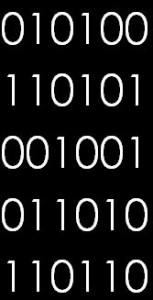It pays to be aware of A.I. messages that are inherently fraudulent without an actual author.
Our identity is closely tied to our words: the words that we use amount to our rhetorical fingerprint. The ways we use the tools of literacy always mark us as a unique person. Ask yourself how often you have paused when asked to sign a petition with grievances or actions already listed. What if the petition doesn’t quite express your views? Ditto even for a drug store sympathy card: not in your style, perhaps, or too flowery. Look at any greeting cards and you realize how hard it is to take “of the shelf” sentiments and try to own their thoughts. By contrast, even a brief note written by us is also a piece of us. And what about A.I. poetry, if there is such a thing? Doesn’t it need a human source: someone who uses expressive language to tap into their life experience? An authorless book makes as much sense as a airplane without a pilot on board.
In non-technical areas, trusting our ideas to ChatGPT and other large language models of artificial intelligence requires the same kind of leaps into skins that are not our own. We now have chatbots that can talk more than friends or relatives guilty of the worst kinds of unearned familiarity.
 Of course there are routine messages where A.I. may get a simple point across, or necessary history on a topic or problem. Businesses like the idea of A.I. for messages because they can come up with facsimiles of transactional exchanges. Predictable requests are identified and answered, policies are explained, and web addresses are passed on. But there is another whole side of language. Language is expressive as much as instrumental. It exists to convert our feelings into words that have meaning for us and the receiver. Ordinary language is the domain of sentient beings who are biological rather than electrical.
Of course there are routine messages where A.I. may get a simple point across, or necessary history on a topic or problem. Businesses like the idea of A.I. for messages because they can come up with facsimiles of transactional exchanges. Predictable requests are identified and answered, policies are explained, and web addresses are passed on. But there is another whole side of language. Language is expressive as much as instrumental. It exists to convert our feelings into words that have meaning for us and the receiver. Ordinary language is the domain of sentient beings who are biological rather than electrical.
Consider as well, the pronoun “I.” Our awareness of it gives us the power to take ownership of objects, needs, feelings, and a reserved space in what is usually a growing social network. Children learn this early, building an emerging sense of self that expands rapidly in the first few years. Eventually they will distinguish the meanings of other pronouns that allow for the possibility of not just “I,” but “we, “you,” and “them” as well. This added capacity to name a specific person is a major threshold. It is necessary to make inferences about others with their distinct social orbits and prerogatives.
Language has more meaning when its human sources can be identified.
This shift to “I” from “we” also enables us to assert intellectual and social kinship, one biological creature to another, bound by an awareness of similar arcs that include learning, living and dying. These natural processes motivate us to assert our own sense of agency: to be engines of action and reaction. We “know” and often boldly announce our intentions, at the same time doing our best to infer them in others. Estimations of motive shape most of our conversations with others. Every time ChatGPT uses forms of everyday language, it is ignoring the fact that it has no resources of the self: no capability to “feel” as a sentient being. Think of the “I” statements used by others as sitting atop a deep well of attitudes and feelings that often come to the surface. When A.I. implies personhood, it is a counterfeit. We all know the feeling when we have fronted for an organization, whose policies and key words sometimes mesh poorly with our own views.
Children are especially vulnerable to the effects of not comprehending what it means that that there is no human presence behind a message. In spite of what the New York Times dismisses as the “doom industrial complex” of A.I. concerns, they have also reported on kids hooked on Character A.I. apps that contribute to social isolation, sometimes disastrous results.
Consider the somewhat parallel case of works of art. To those in the thrall of painting and other forms of art it matters what the provenance of a painting is, especially if there is monetary value in a known artist. As we have explored here before, fakes can be hard to sort out from the authentic work of a master. The person who, in our context, “authored” the painting seems to sometimes matter more than the work in front of our eyes. That is what all of the documentaries on art fraud remind us. If it is so with art, why is the equivalent of provenance for our words something we are so willing to give up?
One answer is that writing is not easy; invention imbedded in literacy taxes the best of us. Some will accept any A.I. facsimile that takes them off the hook. But a key point remains obvious: it pays to be aware of fraudulent messages from A.I. that have no identifiable source.




